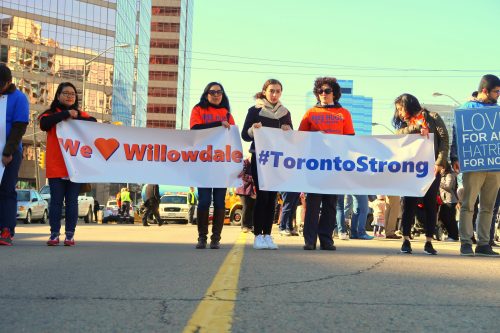
Two notable tragedies occurred in Canada last month. First, the Humboldt Broncos bus and a transport truck collided as the team was en route to a playoff game, killing 16 people and injuring many others. Then a van was driven down a crowded Toronto sidewalk, killing 10 people and injuring several more.
GoFundMe pages were subsequently set up, and phrases such as “Humboldt Strong” and “Toronto Strong” emerged as expressions of solidarity and support for those impacted by these tragedies.
Consumers who make purchases to express support at such times should consider how much of the money they spend is being donated, and where the proceeds from the sales are being directed.
Tim Hortons, for example, underwent considerable scrutiny after reports that a franchisee in Nova Scotia was selling a doughnut that displayed the Broncos’ team colours without intending to donate the related proceeds. Ultimately, the company responded with a nationwide initiative to donate the full $1 from every Humboldt Broncos Strong doughnut sold, which raised more than $800,000 for the hockey team.
Cause-related marketing originated as a tactic for “doing better by doing good,” with the objective being to boost sales and generate revenue for everyone involved. This type of marketing is usually meant to benefit both the company offering the product and the organization that represents a particular cause.
But when the cause is a tragedy, companies will be perceived as opportunistic if the full proceeds are not donated. For example, ethical questions were raised when the major U.S. automakers offered incentives and encouraged people to buy cars and trucks to keep the domestic economy rolling soon after 9/11.
Now there are concerns about unauthorized merchandise that makes use of phrases such as “Humboldt Strong.” Consumers should presume that a marketing initiative is officially endorsed by the Humboldt Broncos organization only if the sale proceeds are being directed to the Humboldt Strong Community Foundation.
Meanwhile, the Saskatchewan Junior Hockey League (SJHL) has independently applied to trademark “Humboldt Strong” and related phrases without the endorsement of the Humboldt Broncos organization. The SJHL also controls proprietary rights for all teams in the league, including the Humboldt Broncos. So if you bought a Broncos jersey like the one worn courtside by Drake during the Toronto Raptors NBA playoff matchup against the Washington Wizards, you might wonder who benefited from the sale. To date, fundraising efforts by the SJHL have not been directed to the Humboldt Broncos organization.
It all raises the question of who, if anyone, should have exclusive protected use of phrases such as “Humboldt Strong.” Is it conceivable that the Humboldt community would not have access to the use of such a phrase, when the city of Toronto has established “Toronto Strong,” a foundation to help those victimized or traumatized by the Toronto attack?